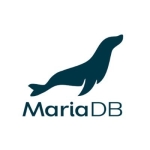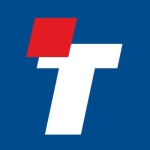What is our primary use case?
It's database software, so it's usually used for enterprise applications, for example, to ensure that you mostly use Oracle. In our country, it's mainly used by financial institutions.
What is most valuable?
I do like the security features and data recovery for features that were enabled there. With the right configurations, you can maintain an environment without retaining the risk of losing any kind of data.
There's also a point in time recovery, et cetera. This is quite useful.
The initial setup is simple.
It is a stable product.
You can scale the solution as needed.
It is very feature-rich.
What needs improvement?
Technical support could be faster.
It's a nice product. It rarely disappoints anyone, but when it disappoints, support takes a lot, a bit of time before they sort you out. If they could improve that, then it'll be a very good experience using it.
For how long have I used the solution?
I've been using the solution for three years.
What do I think about the stability of the solution?
The solution is stable. There are no bugs or glitches and it doesn't crash or freeze. It is reliable.
What do I think about the scalability of the solution?
It's really scalable. The licensing is easy. As you continue having more workloads, you continue to license for more calls. It moves up with you.
We are a bank and we have many, many users.
How are customer service and support?
Technical support is okay.
With support, you have an issue where you find there are these prerequisites for procedures that take a lot of time. There are logs that they need and all that. There are prerequisite procedures they usually have that usually take some time which slows down resolutions.
How would you rate customer service and support?
Which solution did I use previously and why did I switch?
I've used MySQL in the past.
I didn't choose Oracle. After I got certified, I got a job in a place where they already use Oracle.
How was the initial setup?
It is easy to set up the solution.
There's a GUI pop-up. It's mostly clicking next, next, next, unless where you just specify certain items in some configurations.
The deployment time depends on the setup. If it's one single use of a database, it can take a matter of just two to three hours.
I'd rate the setup a four out of five in terms of ease of setup.
What about the implementation team?
If you have a certified DBA, it can be done in-house.
What's my experience with pricing, setup cost, and licensing?
I can't speak to the cost. I don't handle licensing.
What other advice do I have?
I'd rate the solution nine out of ten.
If well configured, it's a really nice. One should consider it. For databases, it's got very high transactions and is very low to tolerant on losing any kind of data.
Which deployment model are you using for this solution?
On-premises
Disclosure: I am a real user, and this review is based on my own experience and opinions.












